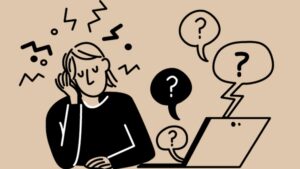Ways to reduce decision fatigue at work will be explained in this article. Have you ever felt too mentally exhausted to even choose what to eat at the conclusion of a long day? You head straight for the drive-through window of the fast food restaurant rather than visiting the supermarket to buy some vegetables to prepare.
How To Reduce Decision Fatigue at Work In 2023
In this article, you can know about How To Reduce Decision Fatigue at Work In 2023 here are the details below;
If something similar has occurred to you, it might be the result of decision fatigue, which is the waning ability to make choices throughout the day. Continue reading to find out what decision fatigue is, what its symptoms are, and how to avoid and reduce it at work.
What is decision fatigue?
The phrase “decision fatigue,” also referred to as “ego depletion,” was first used by social scientist Roy F. Baumeister.
The term “decision fatigue” describes a person’s deteriorating capacity for decision-making throughout the day.
The concept is that after each decision you make, making decisions becomes more challenging.
Decision fatigue doesn’t just happen after major decisions; it can also develop as a result of numerous minor decisions.
By demonstrating how the time of day affected sentences, a renowned study from the National Academy of Sciences in Israel showed decision fatigue.
The longer the judges continued without a break, the harsher the sentences they issued.
This important research supported the notion that making decisions requires considerable mental effort and that decision fatigue is a real phenomenon.
Consider that you begin your day by choosing the launch strategy for your new product’s campaign in the marketing division.
After lunch, you have to choose five resumes from a stack of fifty to meet the following week.
You spend hours reading through the resumes and selecting the candidates you believe will be a better fit for the business and your team based on their qualifications.
By the back of the day, you are worn out, struggling to focus, and starting to get a headache.
Your supervisor enters your office and inquires about your availability for a meeting early the following morning.
You reflexively say yes because you lack the energy to check your calendar, only to discover later that you have double-booked yourself.
Sounds recognisable?
In the workplace, decision-making fatigue is a frequent occurrence, but not all experts concur that it is a natural result of routine decision-making.
Has decision fatigue been disproven?
Scientists disagree over whether decision fatigue is a result of the way our brains function or a reaction to the use of willpower in society, despite the fact that its impacts are very real for some people.
Research like the one involving the judges seem to support the idea that making decisions actually affects performance.
Similarly, a study published in the journal Healthy Psychology found that the longer healthcare workers went without a break, the less effective their choices were.
What is an example of decision fatigue?
These experiments are based on the idea that your brain gradually runs out of glucose after eating.
When sugar levels drop, the brain begins to think more quickly and discount the future, which impairs its ability to make choices.
However, more recent research has challenged the notion that decision-making requires more mental effort than other activities.
Decision fatigue is linked to societal beliefs, not physical inevitability, according to research by psychologist Carol Dweck.
Decision fatigue is supposed to occur if you consider the use of resolve to be tiresome.
According to some studies, decision fatigue is more prevalent in Western societies because they tend to view making decisions as taxing.
Is decision fatigue debunked?
Though experts may disagree on whether decision fatigue is a societal or psychological phenomenon, it does have an impact on a lot of people, particularly at work.
What are the signs of decision fatigue?
There are some typical symptoms of decision fatigue, though everyone may experience it differently.
You may feel:
- Fatigue in the mind
- Mental haze
- General fatigue
The inability to focus on the job at hand is a result of mental fatigue and brain fog.
When there is brain fog, it can seem as though even the simplest chores are difficult and that you are moving through “fog.”
Decision fatigue can have a negative impact on your mental health and overall wellbeing if you don’t allow your mind the time it needs to rest.
Burnout, anxiety, irritability, sadness, and even physical signs like tension headaches can all be caused by decision fatigue.
Choice fatigue can worsen decision-making in addition to how you feel.
Overstressed decision-making can result in:
- Impulsiveness, particularly impetuous purchasing
- Having trouble weighing trade-offs
- choosing between two options that each have advantages and disadvantages
- Putting off things and other evasion techniques
- Impulsive choices or a loss of self-control can result from decision fatigue.
When you lack the mental capacity to weigh the potential outcomes, you are more likely to make an arbitrary decision or select the option that presents the least amount of difficulty, such as getting takeout rather than preparing a meal.
Decision fatigue can also cause delay as a method of decision avoidance rather than forcing oneself to make a quick choice.
Decision fatigue is more likely to exacerbate impulsivity or fast decision-making in people who already have these traits.
Decision-making fatigue can cause crippling delays in decision-making for people who prefer to think things through.
How to reduce decision fatigue
Studies reveal that many leaders attempt to avoid decision fatigue by reducing the number of choices they must make, whether or not making decisions is exhausting.
To reduce their everyday decision-making, former US president Barack Obama, Steve Jobs, and Mark Zuckerberg alternate between one or two outfits.
The effects of decision fatigue can be reduced in two primary ways:
- Reduce low-risk choices
- Modify your mentality towards resolve.
Fortunately, these approaches don’t conflict with one another.
Let’s look more closely.
Limit low-stakes decisions
This tactic consists of two components. Making ensuring your brainpower is going into decisions that actually matter is the first step. The removal of everyday, minor decisions’ distractions is the second step in preventing decision fatigue.
Making important decisions early in the day is one method to make sure you give them your full attention.
Making the crucial choices first thing in the morning can help you come to a good decision because decision fatigue gets worse with each decision.
Remember to regularly check in with yourself. Are you really capable of making this decision at this time? If not, it might be wiser to wait until you’ve had a chance to rest before making a decision that is less than ideal.
It’s crucial to practise fundamental self-care practises like taking short breaks, getting enough sleep, and eating meals that are nutritionally balanced because rest allows the brain to “reset.”
Eliminating small, daily, low-risk choices from the equation is another way to reduce decision fatigue.
When making small judgements, make them more straightforwardly and quickly. For instance, by organising your clothes the night before, you can avoid choosing what to wear first thing in the morning. The mental effort required to make a nightly decision about what to eat is reduced by making a weekly meal plan.
Because a routine lays out precisely what you should do and when, it helps you avoid making small choices about things like getting up, going to bed, and eating.
Change your beliefs about decision-making
Those who think using their willpower is tiring, according to some experts, are susceptible to decision fatigue. This belief may be widespread in Western society for cultural reasons, but as an individual, you have the power to alter your beliefs about how to make choices.
Learn to enjoy making choices rather than seeing the decision-making process as a chore. Making decisions can feel like a lot of labour because of the responsibilities involved.
Try delegating that duty to your partner by exercising shared decision-making, even if it just entails asking them for their opinion on what to eat that evening.
You can begin to attribute choices with less power to exhaust you by altering your pattern of beliefs about what it means to make decisions.
Preventing decision fatigue at work
To increase productivity throughout the workweek and avoid making bad decisions, it is essential to prevent decision fatigue at work. Automation significantly contributes to lowering decision fatigue. You can dedicate more energy to making mission-critical decisions the more decisions you can delegate to an automated system.
Daily decisions, such as scheduling a meeting, involve a lot of decision-making capacity despite being comparatively low-risk. According to research by Bain & Company, meetings take up 15% of a normal organization’s total time.
62 sessions are attended by the typical employee each month. And those figures are only increasing because so many of us stayed at home during the epidemic. Meeting scheduling adds a lot of extra decisions to the workweek, even though there are frequently significant decisions to be made during meetings themselves.
According to Doodle, the typical employee spends 4.8 hours per week merely arranging meetings. According to Dennis R. Mortensen, CEO and Founder of x.ai, it typically takes eight emails to set up a single appointment.
Once the back-and-forth with each participant is complete and a meeting is planned, there is a good chance that it will be forgotten, double-booked, or rescheduled. Making small choices takes up 4.8 hours per week and eight emails per meeting.
It is simple to understand how all of these seemingly unimportant choices could eventually contribute to decision-making fatigue. Automating as many manual processes as you can will help you free up more time and make fewer choices.
Clockwise automates the scheduling of meetings so you have more mental capacity for choices that actually matter. Without requiring you to send a “let’s reschedule” email, Flexible Meetings automatically changes the times of your meetings to accommodate your shifting timetable.
Sharing your availability with anyone inside or outside of your company can be done with just one click using Scheduling Connections.
Every link will share your availability and preferences, so you won’t have to stress about keeping track of it.
Going forward
As the day wears on, decision fatigue can have a crippling impact on your capacity to make the best choices. Many people discover that their capacity for making choices deteriorates over the course of the day, whether as a result of the way our minds are wired or as a result of the society we inhabit.
By reducing the number of small choices you make each day and altering your beliefs about decision-making, you can reduce the effects of decision fatigue. In order to make better choices, it is crucial to prevent decision fatigue at work. It’s a great method to automate some decision-making to automate your schedule with Clockwise.






